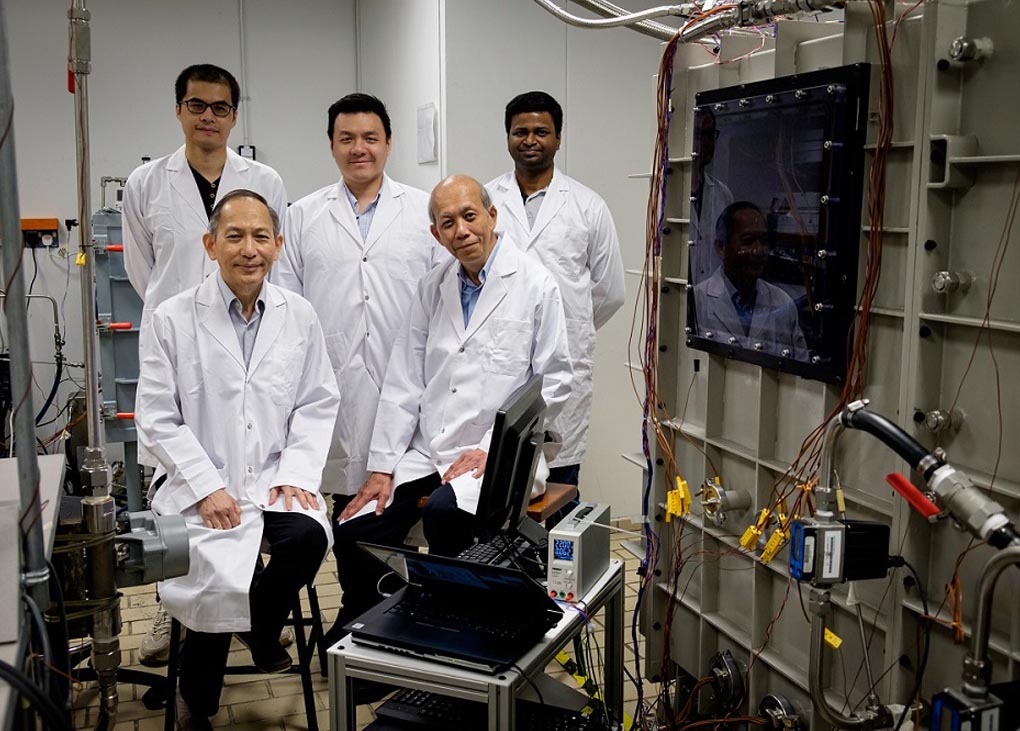Nanyang Technological University (NTU) researchers in Singapore say they have developed a more sustainable and green method for cooling down servers in data centres, potentially reducing both energy costs and carbon footprint by up to 26 per cent.
Data centres in Singapore currently account for 7 per cent of the nation’s total electricity consumption. With demand for cloud computing increasing, a sustainable solution is needed to reduce the country’s energy consumption and carbon footprint.
In a data centre the hottest component in a server is the central processing unit (CPU), which requires a dedicated air-cooled heatsink. Thw data centre also needs to be cooled by low temperature air conditioning.
The new method developed by the NTU scientists uses a special spray of non-conductive fluids to cool the CPU directly without a heatsink. Additionally, a closed-loop system is designed to collect the fluids and cool them in tropical ambient air temperature without the need of a chiller or air conditioning.
“This will also allow CPUs to run faster and perform better than today’s speeds, which are limited by air cooling, since faster speeds currently lead to higher temperatures,” the researchers say.
“As spray-cooling has a higher heat rejection capability, it is estimated it will also require 30 per cent less space than a conventional air-cooled data centre.”
Image, courtesy of Nanyang Technological University: (anti-clockwise from bottom left) Leader of the project NTU Associate Professor Wong Teck Neng, former Associate Professor Toh Kok Chuan, research fellow Ranjith Kandasamy, Asst Prof Ho Jin Yao, and research fellow Liu Pengfei.
 Louise Belfield
Louise Belfield


Leave a Reply